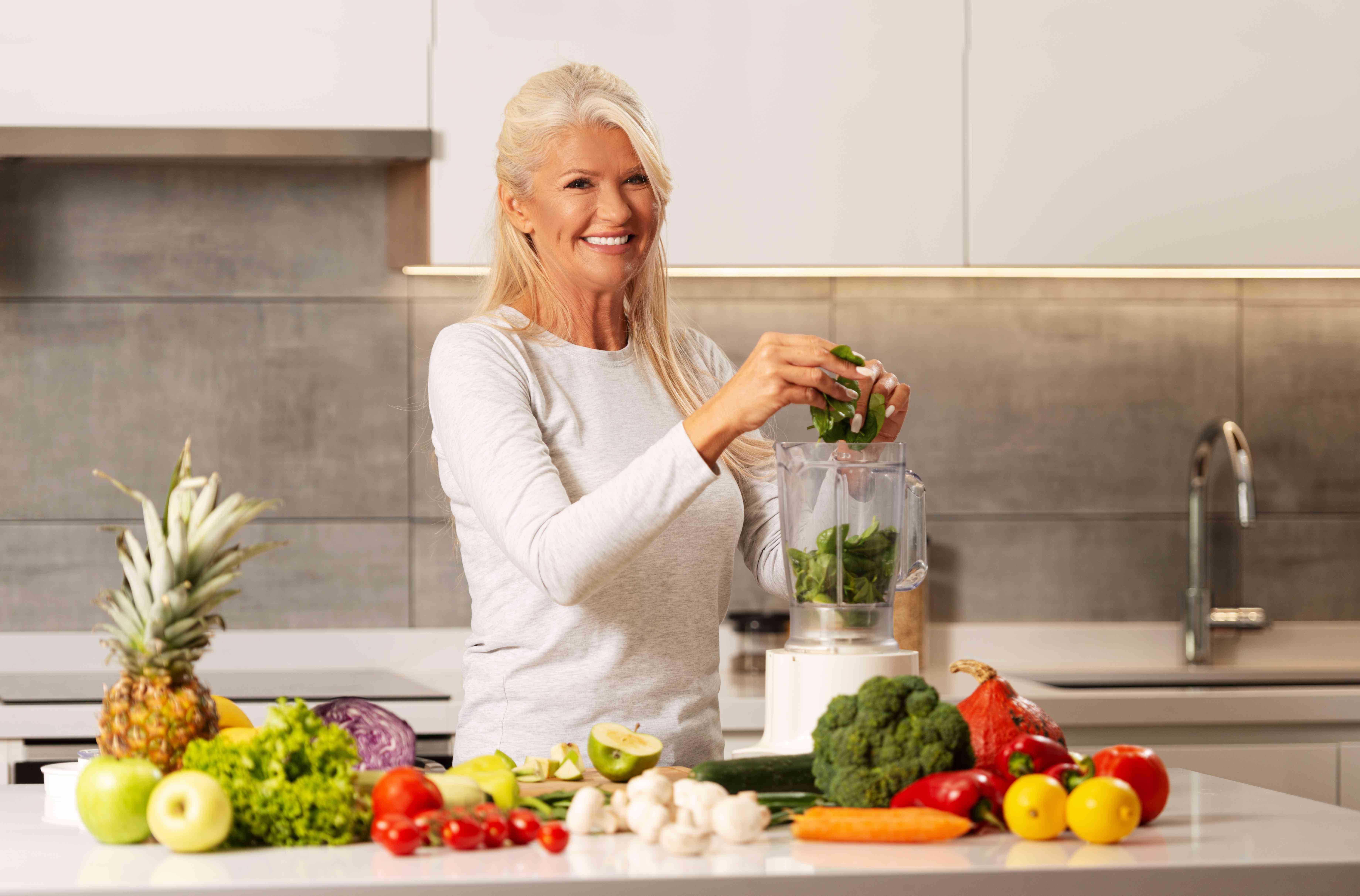

You've reached a milestone-turning 50! It's a time to celebrate the wisdom and experiences you've gained over the years. But it's also a critical period to focus on your health and well-being. Taking care of yourself becomes even more important in your 50s and beyond, and that starts with a balanced diet and regular exercise.
Maintaining a healthy lifestyle can have a profound impact on both your physical and mental well-being. It can help you feel more energized, improve your mood, boost your immune system, and reduce the risk of chronic diseases. That's why we're here to provide you with practical tips and advice tailored specifically for women over 50.
In this article, we'll explore the key nutritional needs of women over 50, offer meal planning tips, recommend an exercise routine, and share lifestyle suggestions to enhance overall well-being. So, let's dive in and discover what you need to know to stay vibrant, healthy, and happy throughout your golden years.
As you continue to age, your nutritional needs change. It's important to adapt your diet to support your health and well-being. Here are some key nutrients that are especially important for women over 50:
Calcium: This mineral is essential for maintaining strong bones and preventing osteoporosis. Include dairy products, leafy greens like kale and broccoli, and fortified foods in your diet.
Vitamin D: Calcium absorption relies on vitamin D. Spend some time in the sun or consider taking a supplement to ensure you're getting enough of this crucial vitamin.
Magnesium: Known for its role in muscle and nerve function, magnesium can help prevent muscle cramps and promote healthy sleep. Find it in foods like nuts, seeds, whole grains, and leafy greens.
Omega-3 Fatty Acids: These healthy fats support heart health and brain function. Include fatty fish like salmon or trout, flaxseeds, chia seeds, and walnuts in your diet.
You've learned about the changing nutritional needs of women over 50, but now it's time to put that knowledge into action with some practical meal-planning tips! Eating well doesn't mean sacrificing taste or variety. With a little bit of planning, you can enjoy delicious meals while meeting your nutritional needs.
Portion Control: As we age, our metabolism slows down, making it easier to gain weight. Pay attention to portion sizes and listen to your body's hunger and fullness cues.
Minimize Added Sugars and Unhealthy Fats: Opt for whole, unprocessed foods whenever possible. Be mindful of added sugars in drinks like soda or sweetened coffee beverages. Choose healthier fats such as avocados, nuts, and olive oil instead of saturated or trans fats.
Meal Prep and Batch Cooking: Make your life easier by prepping meals in advance. Cook large batches of healthy meals and freeze them in individual portions for quick and convenient options during busy weeks.
Include a Variety of Foods: Aim for a colorful plate filled with fruits, vegetables, whole grains, lean proteins (such as chicken or fish), and healthy fats (like avocado or nuts). This ensures you're getting a range of nutrients.
Hydrate: Don't forget to drink plenty of water throughout the day. Staying hydrated helps support overall health and digestion.
Maintaining a regular exercise routine is essential for women over 50 to stay strong, flexible, and healthy. A well-rounded exercise plan can help improve cardiovascular health, maintain bone density, and enhance overall well-being. So let's dive into the exercise routines that will keep you feeling fabulous!
First up, aerobic exercises. Walking, swimming, or cycling are great choices to get your heart pumping and boost your endurance. Aim for at least 150 minutes of moderate-intensity aerobic activity each week.
Incorporating weights or resistance bands into your workouts can help build muscle mass and increase metabolism. Be sure to target all major muscle groups at least twice a week.
Balance exercises should also be included in your routine to reduce the risk of falls. Yoga or tai chi are excellent options that focus on stability and coordination.
Stretching after each workout or trying a gentle yoga class can improve middle age flexibility.
Now that you have a good understanding of the importance of diet and exercise, let's explore some additional lifestyle tips to help you achieve overall well-being in your 50s and beyond.
Prioritize Sleep: Aim for 7-9 hours of quality sleep each night by establishing a relaxing bedtime routine and creating a comfortable sleep environment.
Manage Stress: Find healthy ways to manage stress, such as practicing mindfulness techniques like meditation or deep breathing exercises. Engaging in hobbies you enjoy, spending time with loved ones, or seeking support from a therapist can also be beneficial.
Stay Socially Active: Maintaining social connections is essential for mental well-being. Joining clubs or interest groups, volunteering in your community, or even just reaching out to friends regularly can help combat feelings of loneliness and isolation.
Regular Check-ups: Don't forget to schedule regular check-ups with your healthcare provider to monitor your overall health and catch any potential issues early on.
Maintaining a healthy diet and exercise plan in your 50s is crucial for optimal well-being. By focusing on your nutritional needs, meal planning, exercise routine, and overall lifestyle, you can age gracefully and enjoy a fulfilling life. Remember, it's never too late to start making positive changes for your health! Here's a recap of the key points discussed:
Prioritize nutrient-dense foods such as fruits, vegetables, whole grains, lean proteins, and healthy fats.
Include key nutrients like calcium, vitamin D, magnesium, and omega-3 fatty acids in your diet.
Plan meals to ensure balanced nutrition while controlling portion sizes.
Limit added sugars, sodium, and unhealthy fats to your meals.
Incorporate exercise into your routine with a combination of aerobic exercises, strength training exercises, balance exercises, and flexibility exercises.
Start slowly and gradually increase the intensity to prevent injuries.
Take care of your overall well-being by getting enough sleep, managing stress levels, staying socially active through hobbies or clubs/groups, and scheduling regular health check-ups.
Remember to consult with healthcare professionals for personalized advice based on your specific needs. Embrace this new chapter of life with confidence as you take charge of your health!
And always remember: You've got this!
Disclaimer: The information provided in this article is for general informational purposes only and should not be considered professional advice, diagnosis, or treatment. Always consult with qualified professionals regarding any questions or concerns you may have about your specific situation. Reliance to the information provided in this article is at your own risk. We do not endorse or recommend any specific products, services, or treatments mentioned in this article.
